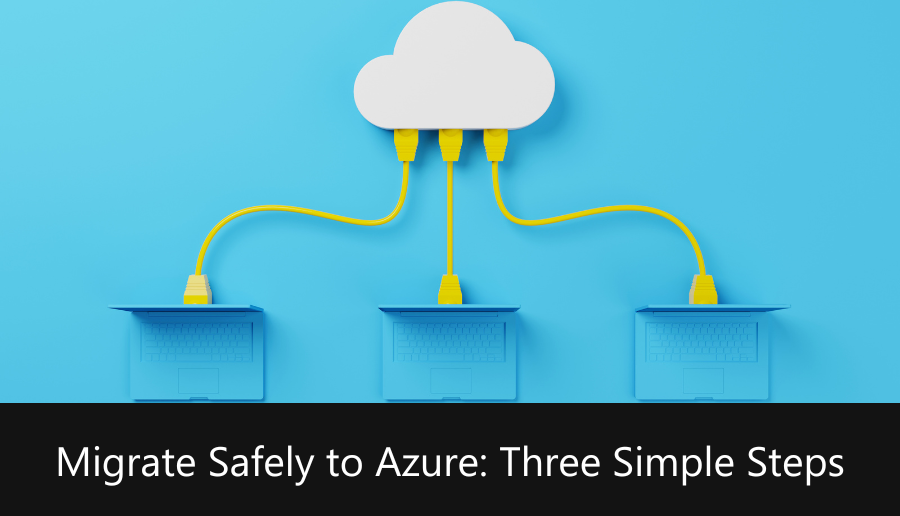Recent years have seen organizations move their IT assets to the cloud or create hybrid environments comprising on-premise and cloud solutions. Still, some businesses rely entirely on on-prem applications to run their operations. Perhaps they aren’t ready to move entirely to the cloud (yet) for some reason.
But with the rise of remote working, businesses have been forced to migrate their data to the cloud. If you need more security and data storage or be in compliance with your third-party applications but are not ready, you can migrate your on-premise applications to Azure Cloud.
Microsoft Azure is the fastest-growing cloud platform encompassing more than 200 products. This cloud platform offers businesses a range of benefits and capabilities, including a disaster recovery plan. Here’s why you should move your on-prem applications to Azure.
Benefits of hosting on Microsoft Azure Cloud
Migrating to Azure Cloud presents a set of challenges, including cost and planning. But the benefits outweigh the costs.
Increased reliability and availability
Cloud infrastructure offers high uptime and automatic failover. As a result, you’ll enjoy increased reliability and availability when you move your data to Azure Cloud. For instance, you can access your data on the cloud anytime, anywhere.
Azure availability zones offer individual physical locations to protect data and applications from failures. Also, considering Azure is under Microsoft, a tech giant with a global footprint, you have no reason to worry about availability.
Scalability and flexibility
The Azure platform allows you to scale your resources as needed. This gives you the ability to respond quickly to changing business needs and demands. You can also quickly scale up and down your data storage capabilities.
The scalability and flexibility of Azure make it a suitable solution for organizations of any size and industry.
Improved security
Azure offers a comprehensive security platform to host your applications. You get to enjoy features such as network security, data encryption, and threat protection.
For instance, Azure DDoS protection and Azure Information Protection help monitor and control external data transfers.
Reduced costs
Like any other cloud service, Azure lets you pay for what you use. This means you’re not charged for services irrelevant to your business.
Also, you don’t need to maintain or refresh server components, which is costly-you won’t need to hire IT staff to maintain local servers. According to Microsoft, you could save up to 85% by running your virtual machines in Azure.
Benefits of Azure’s Disaster Recovery Plan
A disaster recovery plan is a comprehensive plan that highlights the steps organizations should take in the event of a disaster or disruption. The primary goal of a disaster recovery plan is to ensure the continuity of business operations after a disaster or disruption.
In the unlikely event of a disaster at your physical location, you could lose all your data if stored on a local server. However, if you store your data in the cloud, you won’t lose your essential data during a disaster in your physical location.
Azure offers complete end-to-end backup and disaster recovery solutions, helping you secure your essential data. Here’s how hosting on Microsoft Azure enables a disaster recovery plan:
- Reduced downtime: according to Microsoft, Azure’s disaster recovery plan is about 66% shorter than on-premise servers. So in the event of a disaster, you can easily and quickly recover your operations and minimize downtime.
- Improved business continuity: Azure’s disaster recovery plan allows your business operations to continue after a disaster.
- Increased confidence in the ability to recover: With a disaster recovery plan, you can recover any lost data and keep your business operations. This also means your business reputation holds, and people will likely trust you more.
Conclusion
If you haven’t migrated to the cloud yet, your business is missing a lot of benefits. Microsoft Azure allows you to host your on-premise applications in the cloud and enjoy benefits like increased reliability, scalability, and improved security. The added protection of a disaster recovery plan ensures business continuity and protects your reputation in the event of a disaster.
But, migrating your data to the cloud is not easy—it requires careful planning and costs. However, Microsoft Dynamics partners like TMC can help you plan easy and successful migration with confidence. We can help you migrate your on-premise applications to the Azure cloud. Contact us today to learn more about our Azure cloud services.









